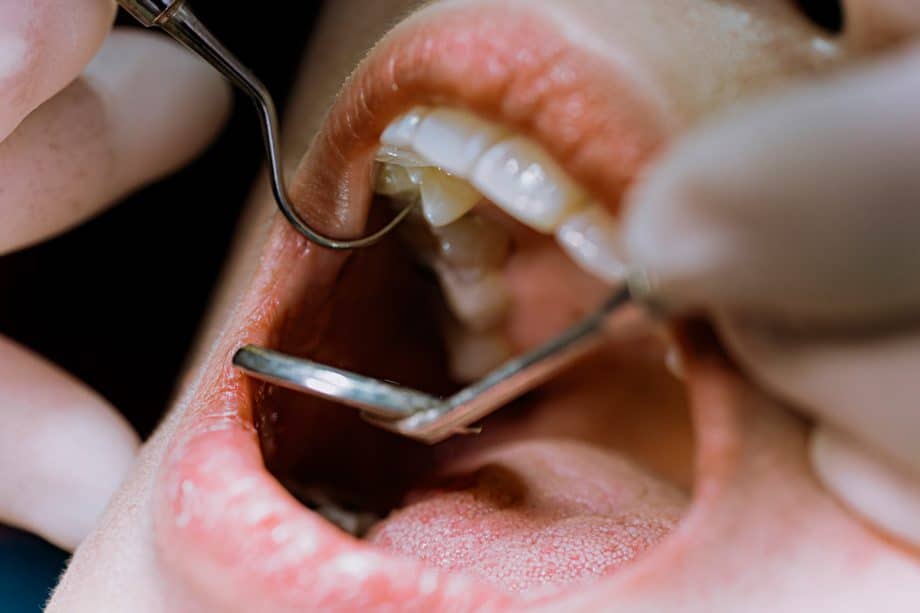Scaling and root planing is a periodontal maintenance procedure that helps control gum disease’s effects. If your dentist requests that you make an appointment for scaling and root planing, you exhibit signs of periodontal disease.
Scaling and root planing are vital methods to remove plaque and tartar contributing to gum disease progression. If you do not receive recommended scaling and root planing treatments, you may be more vulnerable to future tooth loss and extreme discomfort.
The Scaling and Root Planing Procedure
Before starting your procedure, you will receive a local anesthetic to eliminate discomfort. The process begins with scaling. The practitioner uses a set of specialized instruments to loosen and remove plaque and tartar (calculus) from the tooth surface and below the gum line. After scaling, root planing smooths the roots of each tooth and helps healthy gums reattach, shrinking periodontal pockets.
About Periodontal Disease
Periodontal disease is a persistent infection of the gums and bones that support your teeth. When patients do not pay proper attention to oral hygiene or receive regular professional cleanings, plaque and food particles build up on the teeth.
Over time, plaque and food harden into tartar, also known as calculus, which builds up along and below the gum line. Bacterial waste created by plaque and tartar will eventually break down the gum and bone tissue that holds your teeth in place.
Symptoms of Periodontal Disease
Gum disease is progressive. It starts with subtle symptoms but can progress to extreme discomfort and tooth loss.
Gingivitis
Periodontal disease starts with innocuous symptoms commonly known as gingivitis. Given excellent oral hygiene and professional care, gingivitis is fully reversible. However, dentists can only control the later stages of this condition.
Gingivitis symptoms may include:
- Gums that bleed during brushed or flossed
- Swollen gums
- Red or darkened gums
Moderate Periodontal Disease (Periodontitis)
Once your gums have reached the stage known as periodontitis, the disease is irreversible, and you can only control it. However, if you pay close attention to your oral health and visit the dentist for scaling and root planing as directed, you may be able to halt its progress.
Symptoms of moderate periodontal disease include:
- Receding gums that make teeth look longer
- Deep pockets between the teeth and gums
- More space between teeth
- Foul breath
- Loose teeth
- Change in dental bite
Severe Periodontal Disease
When periodontal disease reaches its end stages, your teeth are vulnerable to loss because the bone around them begins to soften and break down.
- Highly sensitive teeth
- Pus and infection on the gum line
- Painful chewing
- Tooth loss
Treatments for Periodontal Disease
- Scaling and root planing: This non-invasive procedure can halt gum disease’s progress.
- Topical antibiotics: Your dentist may prescribe rinses or gels.
- Oral antibiotics: Treat stubborn infections that have progressed past the gums.
- Gum or bone graft surgery: Rebuilds the lost tissues affected by gum disease.
Risk Factors for Periodontal Disease
Poor Oral Hygiene
This is the most prevalent cause of periodontal disease, which is often preventable if patients pay proper attention to their oral health.
Tobacco Use
Tobacco impedes healing and severely restricts blood flow to the gums.
Autoimmune Diseases
Lupus, Crohn’s Disease, and scleroderma may contribute.
Heart Disease
Researchers have found a link between heart disease and gum disease. The common problem is inflammation in the body.
Genetics
If your parents had gum disease, you may also develop it. However, with excellent oral hygiene, you may be able to avoid being diagnosed with periodontal disease.
Frequently Asked Questions About Periodontal Care and Maintenance
How often do I need scaling and root planing?
Your dentist will inform you how often you must visit for scaling and root planing. Typically, most patients visit for periodontal maintenance three to four times per year.
What happens if gum disease goes unchecked?
Scaling and root planing can keep gum disease under control and prevent it from progressing rapidly. If you choose not to treat gum disease, it will inevitably progress. Without intervention, you may lose your natural teeth.
Call Jacobs and Thatcher Dentistry
Scaling and root planing may seem intimidating, but it is a straightforward procedure that safeguards your oral health and may save your natural teeth. If you have signs of periodontal disease, please call Jacobs and Thatcher Dentistry for a prompt appointment at 813-634-1932.

